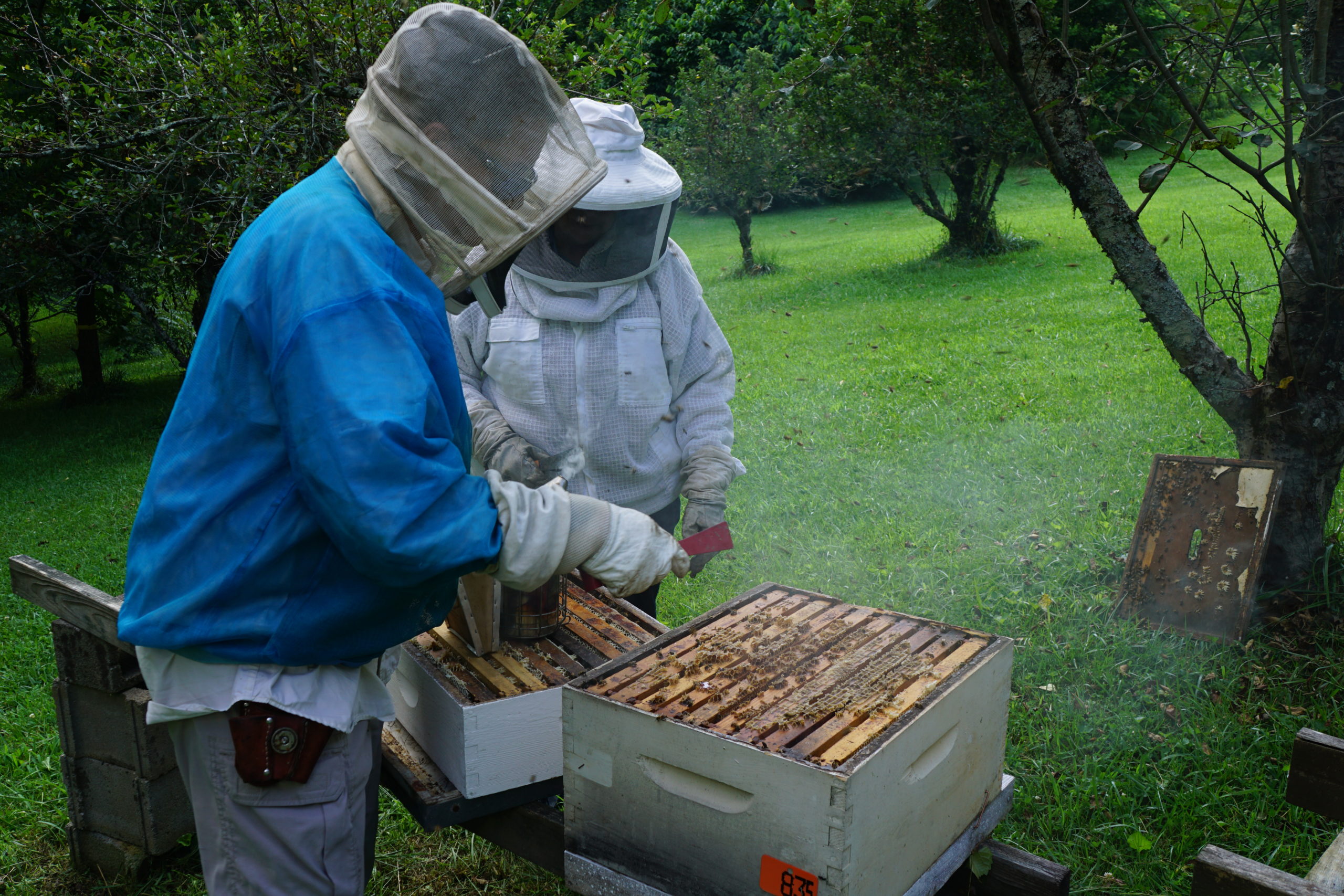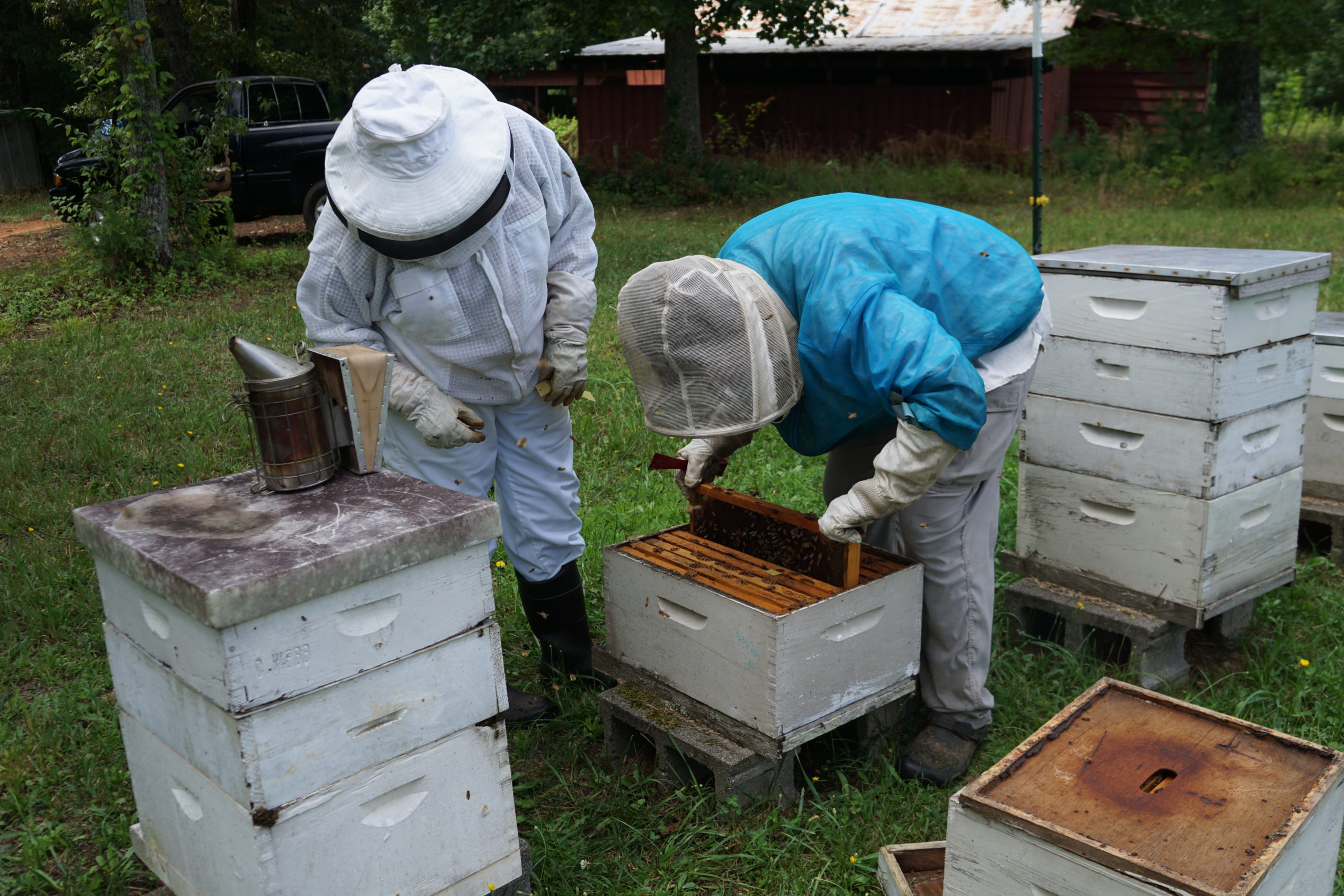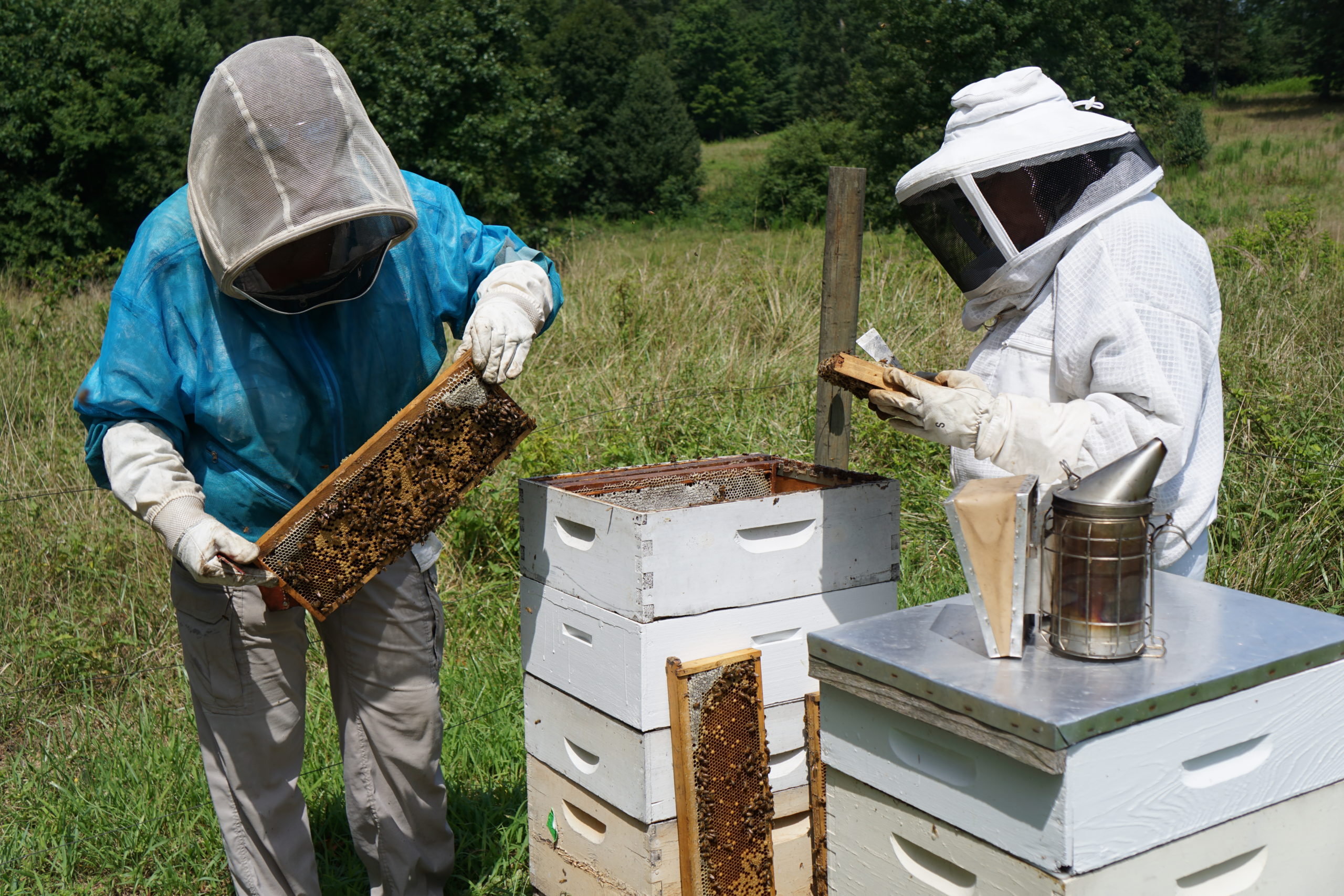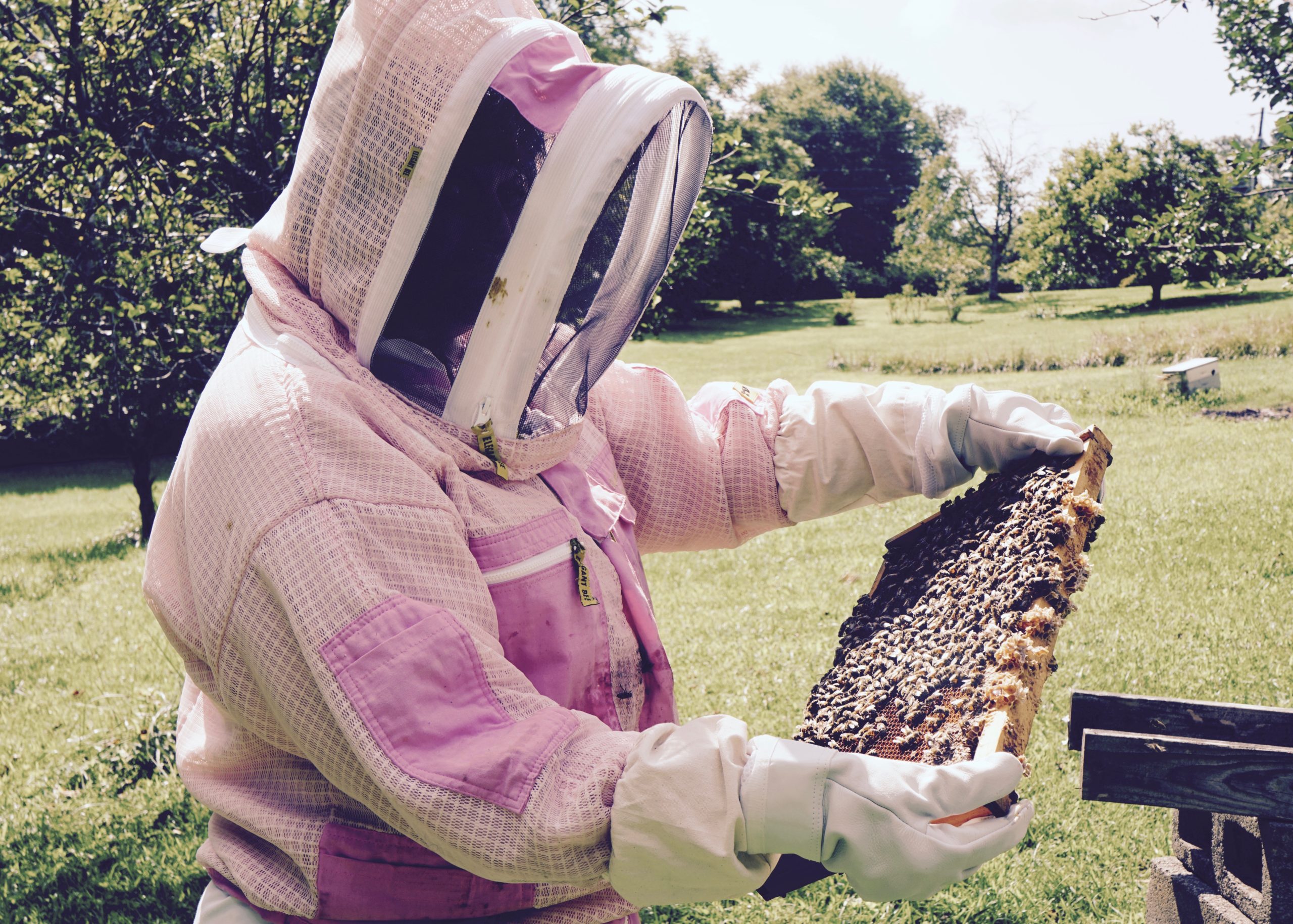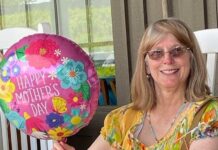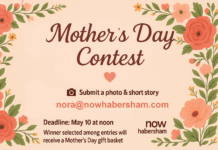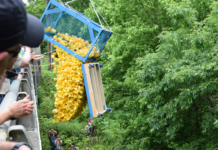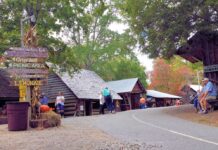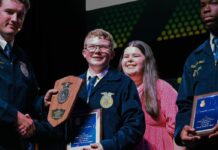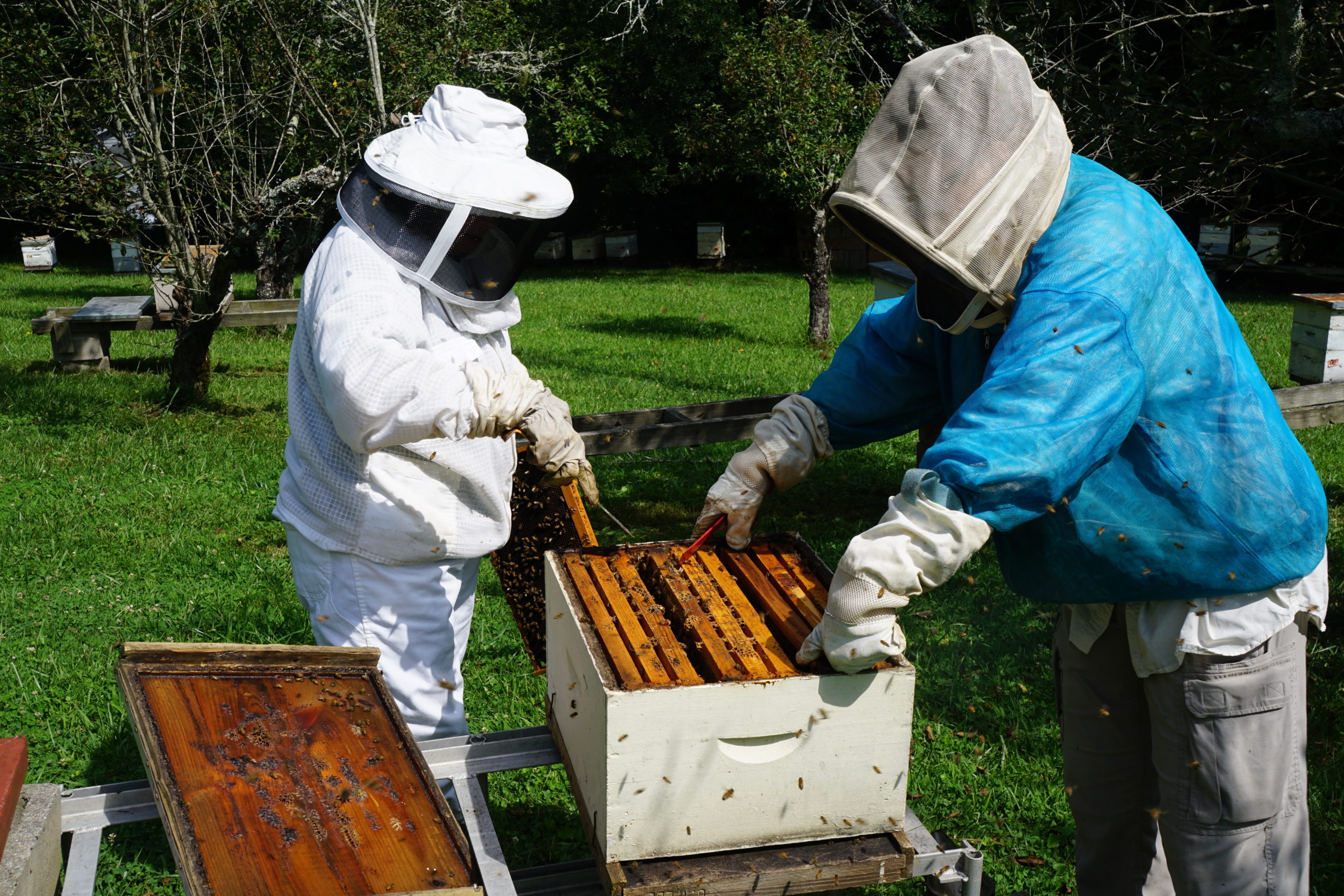
Virginia Webb has an international reputation as a leading expert in bees and honey. Her Sourwood honey has been selected four times as the best in the world at the World Honey Show. And, her Sourwood honey has been chosen best in the country for the past five years against more than 2,000 entries and 17 categories.
When she advertises the best honey in the world, Virginia isn’t kidding.
Virginia and her late husband Carl are well known nationally and internationally for their work with honey bees. In fact, colleague, Katie Goodman, describes her and her late husband as “bee royalty.”
“When I first started going to conferences with Virginia and Carl Webb, it felt like the crowds would part for them like they would for royalty to allow them to walk through,” says Goodman. “Virginia continues their work and is highly regarded in the beekeeping world.”
Virginia, however, is low-key about her work in the bee industry.
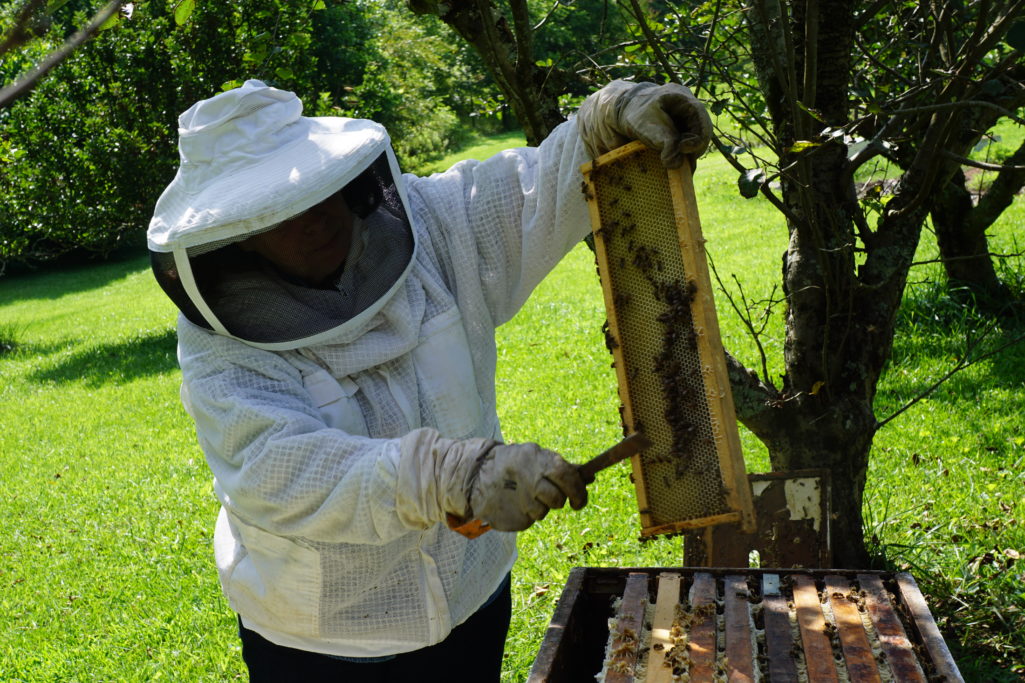
According to Virginia, the title she most prefers is “female farmer.” Virginia points out, “Habersham is still a farming county. I want to be counted as one of the farmers, and there are not many female farmers in the county.”
And, Virginia is proud of her workforce.
“I’m the largest employer in the county,” she says. “Each hive has 60,000 –80,000 bees working in the summer. And right now, I have 200 hives. That’s 12 to 16 million bees working each year for me.”
Regardless of which title is used, beekeeper or female farmer, spending a day in Virginia’s domain is an educational experienced. Webb is passionate about everything she gets involved in, and it’s especially seen in her passion for bees.
Becoming a beekeeper
Virginia Webb received her first beehive in 1964 as a birthday gift from her father. He was always working with bees as a hobby. Over time, Virginia’s talent with bees grew, as did her own collection of hives. Working in an Atlanta bank kept her busy and her bees were definitely a hobby. That is until she met Carl Webb.
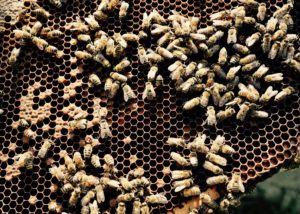
Carl was a beekeeper when he and Virginia met at a beekeepers’ meeting. Although he was a good bit older than Virginia, they had so much in common that they were married in 1998. He asked her to move to Clarkesville for a year and see how she felt about living in a rural area. Virginia agreed, thinking one year was as long as she could make in in a rural setting. However, she never looked back and has been in Clarkesville ever since.
At one time, Virginia and Carl had as many as 400 beehives, spread throughout Habersham County, neighboring counties, and even into North Carolina. When Carl became sick, they had to downsize the number of hives they could take care of. Carl died over a year ago, but Virginia continues their business and is ready to expand the number of hives again.
The science of bees
Albert Einstein is sometimes quoted as saying, “If the bee disappears from the surface of the earth, man would have no more than four years to live.” According to Virginia Webb, that’s not reality. “But,” she says, “we would live without the colors and the varieties of foods we now enjoy!” That’s because bees play an important role in growing the fruits and vegetables we enjoy but often take for granted.
Virginia points out that only three natural foods can exist without bees: wheat, rice, and mushrooms. Regardless of what happens to the honey bees, we will always have those foods available. But, really, would we ever be satisfied with that kind of diet.
Honey bees play an important role in the production of all grown food. They move from flower to flower, collecting nectar from each, that they take back to the hive. That nectar is brought back to the hive to become honey. In the process, the bees pass pollen from plant to plant. According to Virginia, a seedpod must be fertilized seven to nine times each for the pod to grow into a marketable vegetable.
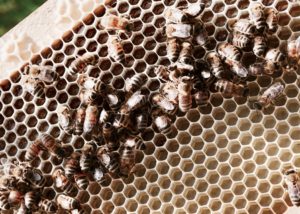 Virginia and Carl were also chosen to be part of a small, select group of beekeepers who worked with importing Russian honey bees to the United States. The Russian bees were resistant to the Varroa destructor, a parasitic mite that attacks and feeds on the American honey bees. The mites were so successful that they almost eradicated America’s honey bee population.
Virginia and Carl were also chosen to be part of a small, select group of beekeepers who worked with importing Russian honey bees to the United States. The Russian bees were resistant to the Varroa destructor, a parasitic mite that attacks and feeds on the American honey bees. The mites were so successful that they almost eradicated America’s honey bee population.
Virginia remains a certified specialist working with the United States Department of Agriculture in breeding Russian honey bees to be used throughout the United States. There are only 25 certified breeders in the U.S. who are required to take scientific data to ensure that the DNA of the Russian bees is passed on to the honey bees they breed. Virginia is the only certified beekeeper in the program in Georgia
The process of making honey
Each box in which bees work is actually a hive. Each group of hives, usually between 20-30, is called an apiary. And, the beekeeper can be called an “apiarist” as well as a beekeeper. Up close, the hive is a series of trays, placed one atop the next. The queen of the hive resides in the bottom level, and the beekeeper never touches all the honey created at that level because it is what will be needed to keep the colony alive during the winter.
Apiaries are spread out in areas that provide the flora and fauna the bees need to make the honey. For example, Sourwood honey is made using the nectar from Sourwood trees, so the hives in a sourwood apiary need access to those trees.
Wildflower honey is made from bees feeding off the variety of flowers in the area. For example, clover is one of the flowers honey bees will feed on. Each tiny spike in the clover ball is actually a separate flower. Honey bees will take nectar from any of them.
One interesting fact is just how much nectar has to be collected to produce honey. To collect enough nectar for a one-pound jar of honey, bees in one hive will visit two million flowers and fly 55,000 miles in the process.
To make honey, the bees create a digestive enzyme that transforms the raw nectar into honey. When this process is completed, the bees cover the honey with pale wax. That wax lets the beekeeper know that the honey is ready to be harvested.
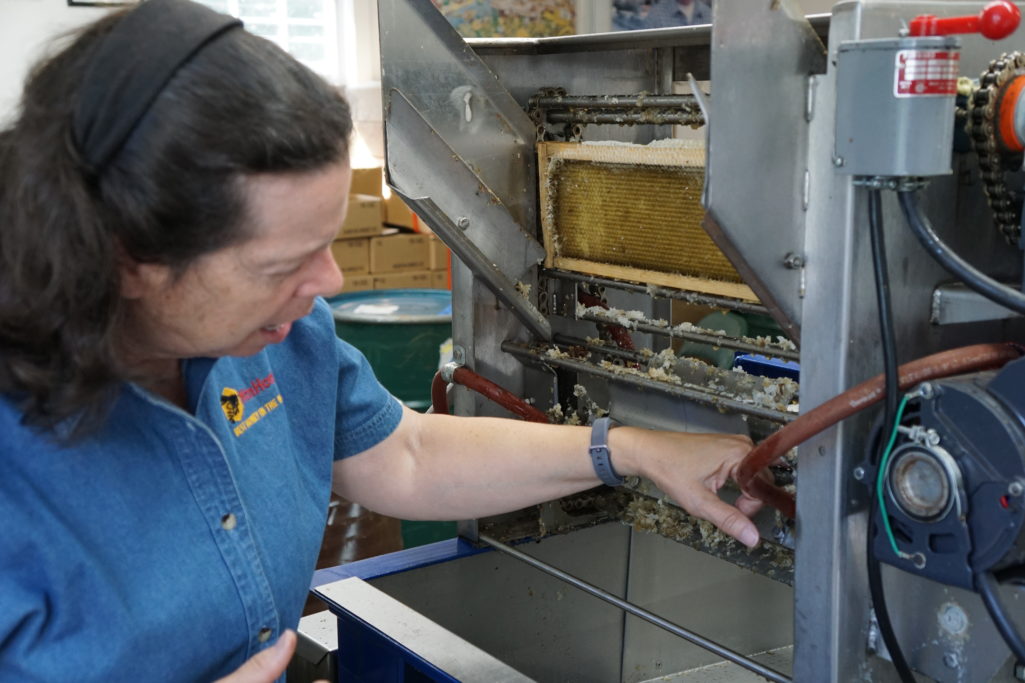
Virginia has state-of-the-art equipment for processing the honey she collects from her bees. One machine actually cuts away the wax layer, uncovering the natural honey. The tray of honey is then put into a processor that removes the honey from the tray and then is processed to remove anything that isn’t honey. Finally, the pure honey is collected into large vats, ready to be bottled.
The world’s best honey
It’s difficult to get Virginia to explain why her honey has won international awards. She credits the area in which her bees work – the Northeast Georgia mountains – with much of her success. Virginia points out, “There are other beekeepers producing excellent honey in this area. We make wonderful honey up here.”
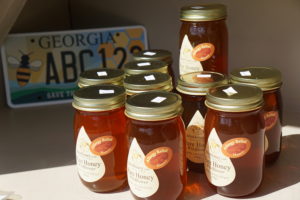
Perhaps Virginia’s edge is in her desire to create the best honey possible. Katie Goodman has been working with Virginia for several years now and has watched her at work. Katie shares, “Virginia is really passionate about her bees and her honey. And she’s constantly monitoring the hives, making sure the bees are healthy. She’s a stickler for the details. She checks and then rechecks every step of the way to make sure the honey is as close to perfect as it can be.”
Virginia’s busy with her commercial honey business, but not too busy to share her passion for bees with others. She’s in demand as a speaker and teacher about bees and honey. She teaches at the Arrendale State Prison for women as well as the John Campbell Folk School in Brasstown, North Carolina. She’s also a member of local and national beekeeping organizations and has served as leadership in the organizations.
Know your beekeeper
Virginia’s advice for anyone who loves honey is to buy locally and know your beekeeper. Apparently, half of all honey sold in the United States is imported. Virginia suggests talking to the beekeeper and hearing how they go about making the honey. And, she encourages us to try out many of the local varieties.
One last fact learned with Virginia: Honey can last forever. Makes you want to go get some honey, doesn’t it?
Save the honey bees
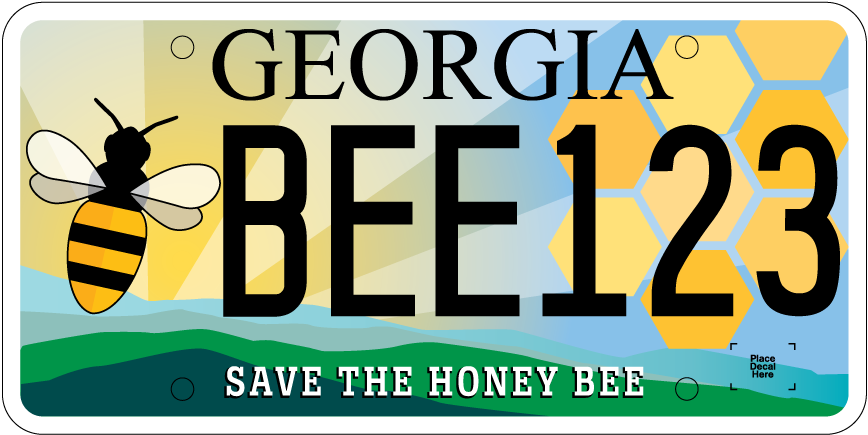
One of the things that Virginia and Katie are both proud of is their work in getting the Save the Honey Bee License Plate developed for the state of Georgia.
The Georgia Beekeepers Association created the tag and got it approved by the state.
Some of the funds raised through the sale of the tags are provided as grant monies to support the educational and research work in the area of bees and beekeeping in the state of Georgia. For more information, go to the Georgia Beekeepers Association.
There are only two ways to purchase Virginia’s honey – online or at her Honey Stand at the bottom of her driveway. If you’re local to the Clarkesville area, the honey is cheaper at the Honey Stand because there are no extra fees attached. You may purchase the honey online at MtnHoney.com.




